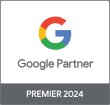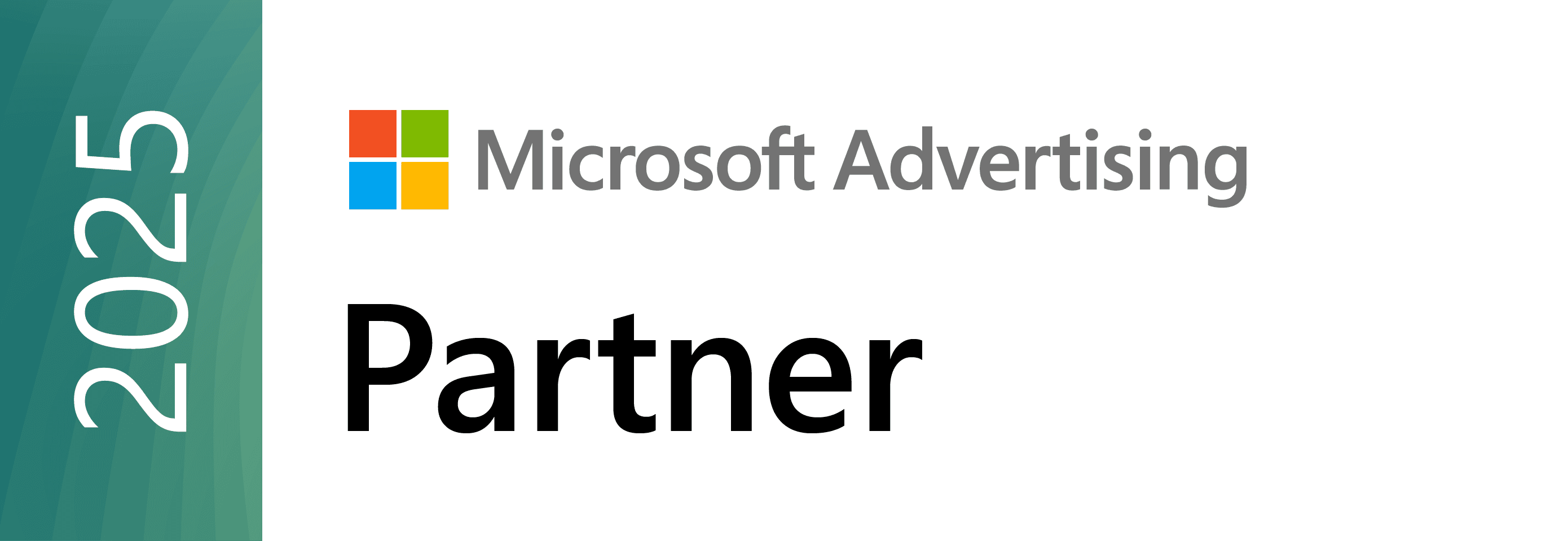Choosing an agency is tough. Knowing when to stay with one is tougher.

Choosing a pay-per-click (PPC) marketing agency is a big decision for both eCommerce and lead generation websites. There are all manners of digital marketing agencies out there, and choosing one can and should take time. You will be not only paying this agency to run your ads but also entrusting them to spend your money.
But, after you hire an agency, how can you be sure it is a good fit six months or 12 months later? Companies question their selection all the time, especially after experiencing agencies like these:
- Cookie-cutter agencies that recycle the same strategies to all their clients (i.e., “We use this strategy for all our clients, and it works GREAT.”)
- Agencies that set and forget accounts — sometimes not looking into the account for weeks at a time.
- Agencies filled with employees that specialize in “all aspects of online marketing” (never a good sign). Your “SEO-PPC-Paid-Social-Media expert” is NOT an expert at all three.
The digital landscape is constantly evolving and difficult to navigate, hence why you entrust your digital marketing to an agency. For this same reason, it is difficult to understand if your agency is the best one for the job.
Over the past 14 years, Inflow has audited accounts run by countless agencies. Although their strategies and approaches vary, there are several consistencies we have come to recognize with good agencies — and several we see with bad agencies.
This article will help you identify if your agency falls under any of our “bad” agency buckets and will describe what to look for in a “good” PPC agency.
Signs of a “Bad” PPC Agency: Common Complaints
Before we begin, we have to address the “bad” terminology.
A “bad” agency can still get results or still be helpful and easy to work with. This designation is intended to show you the expectations you should have for an agency and what aspects you should not have to sacrifice. Here are the signs to look for:
- Communication gaps
- Lack of ongoing strategy
- Few or no substantial changes
- Overreliance on automation
- Reluctance to embrace what’s new
More detail below on each of these common issues that businesses come across with PPC management companies.
Communication Gaps
The digital landscape moves fast, and so does your company. If an issue arises in your Google Ads Account or other paid search accounts, you want to know it will be addressed immediately, not three days from now.
One of the most common things we hear regarding “bad” agencies is that “they always took forever to respond.” An agency spending your advertising dollars has an obligation to be prompt and thorough in its communication — anything less can have huge impacts on performance.
At Inflow, we have a company policy regarding emails. We will respond to a client email within one business day, even if it is just to inform them that we are still looking into the matter. This way, our partners are confident that we have received their message and are on top of the situation.
If you’re wondering what to look for in a PPC agency proposal, make sure to ask for the company policy on communication.
Lack of Ongoing Strategy

You’ve had your agency for years. After its hire, it created three campaigns and revenue skyrocketed. Since then, it has only run those three campaigns because they have worked well, and the agency doesn’t want to rock the boat. Does that sound right?
Not quite. Just because a campaign has performed well for years doesn’t mean it can’t be improved even more. You’re paying for continuous improvement, not a one-time fix.
We work in an industry of constant pivots and changes. Google changes its algorithm more than 3,000 times each year in addition to adding new betas, ad types, bidding strategies, demographics, and more.
Staying complacent with the same ads and marketing campaigns will leave you far behind the curve in the blink of an eye.
With all this change, new findings and offerings require adjustments in strategy. It may be something as complex as an entire account restructure with advanced segmentation or as simple as splitting out campaigns by device. Regardless, we must make sure our strategies are evolving to take advantage of the latest Google Ad features, campaign types, bidding strategies, etc.
If your agency has been running the same strategy for a while, it may be time for an audit.
Few or No Substantial Changes
Automation, while effective, can also be a sign of a bad agency. Agencies that base their entire strategy on automation typically aren’t putting in the proper analysis to determine an effective combination of automated and manual strategies.
A strategist should be manually investigating your account weekly, analyzing performance, and making manual changes. Even with automation, you should still see a healthy amount of changes made in your account. As a rule of thumb, a bare change history leads to bare results.
Go to your account’s change history, and make sure that someone in the account is routinely optimizing your campaigns. Make sure that these changes are human-made too — if john@youragency.com is making 402 bid adjustments per week, then it’s likely that they are utilizing some sort of automation.
Although this in itself isn’t bad, make sure that there are other changes in the account that are manual.
Overreliance on Automation

Automation is great — until it isn’t.
Automation has become an increasingly popular tool in Google Ads. Nowadays you can run automated search, shopping, and display ads. Although Google’s machine learning is getting better by the day, we have seen situations in which a campaign is using the wrong automated strategy or would benefit from a more manual method (yes, our manual campaigns can and have beaten Google’s automated strategies).
Bottom line: The best PPC agencies test both manual and automated strategies, so make sure that’s what your agency is doing in your account.
Although it can be tricky to identify a properly automated account, here are some things we typically see in a well-structured automated account:
- Multiple shopping campaigns are organized by profit margins, top sellers, categories, or some other segmentation strategy.
- Brand campaigns utilize a target impression share (IS) strategy and achieve a high impression share (90%+).
- Impression share of all campaigns is holding constant.
- Return on ad spend (ROAS) is holding steady or improving (not spiking then declining).
- Spend is consistent throughout the month and not fluctuating from the beginning of the month versus the end of the month.
- There is not a high amount of changes to the automated strategy (adjusting an automated target can “reset” Google automation, affecting performance temporarily).
Reluctance to Embrace What’s New

As mentioned already, keeping pace with the constantly evolving Googlesphere is tough. Your agency should keep up for you! Being aware of the latest offerings isn’t enough; your agency should be testing new ad types, extensions, and campaign types constantly.
If your agency is a Google Partner, they may even have access to more Google offerings prior to their launch. Make sure your agency is checking in to see what betas they can acquire for your account as these can give you a leg up on the competition. Even if your agency is not a Google Partner, it should be constantly testing new strategies for your company.
If your company is just bringing up responsive search ads (or worse, hasn’t), then it’s time to schedule an audit with another agency to get the peace of mind that comes with knowing your ad spend dollars are being used effectively and efficiently.
Qualities of a “Good” PPC Agency
Although there are many factors to constitute a “good” or “bad” agency, here are some qualities often found in “good” agencies (the opposite of each could be considered a red flag):
- Communication is informative and transparent.
- In-depth reporting calls detail marketing strategies and performance.
- A/B testing is being utilized.
- They respond in a timely manner.
- They insist you own your ad accounts and do not act as a middleman for any ad spend payments.
- You see steady improvements in performance.
- You are gaining or maintaining impression share on branded PPC campaigns.
- Segmentation is being utilized, and there’s not too much reliance on automation in your paid search account.
- Attribution and performance metrics in their reporting are clear and logical.
Questions to Ask Your PPC Agency
If you’re looking to dig a bit further into your current PPC services, or are considering taking your PPC advertising management to a new agency, here are some questions to ask:
- Do you have a company policy on responding to emails and communications?
- What resources and outlets do you use to stay updated on changes in the industry?
- How often do you review campaigns strategies and look for ways to improve?
- How much automation is used in your strategy approach, and how much of the analysis and changes are manual?
- How often do you test new strategies, campaign types, etc.?
- What type of reporting do you offer and how often will we review the performance?
The answers to these questions can help determine if the agency is a good fit for your business.
If you think it’s time to have your paid accounts audited, feel free to reach out for a free consultation with our experts anytime.











I’d have to agree there Shane that all 5 points are very relevant for both the success of the ppc campaign and client’s piece of mind. Very large ppc accounts with huge budgets run by big corporate account managers have been known to use a broad blanket approach strategy which is obviously not very well targeted and a poor use of funds.
Paid marketing is all about constant testing and tweaking so how some ppc agencies justify the setup and forget approach is a little hard to understand, and again comes as no surprise that less than optimal results are achieved.